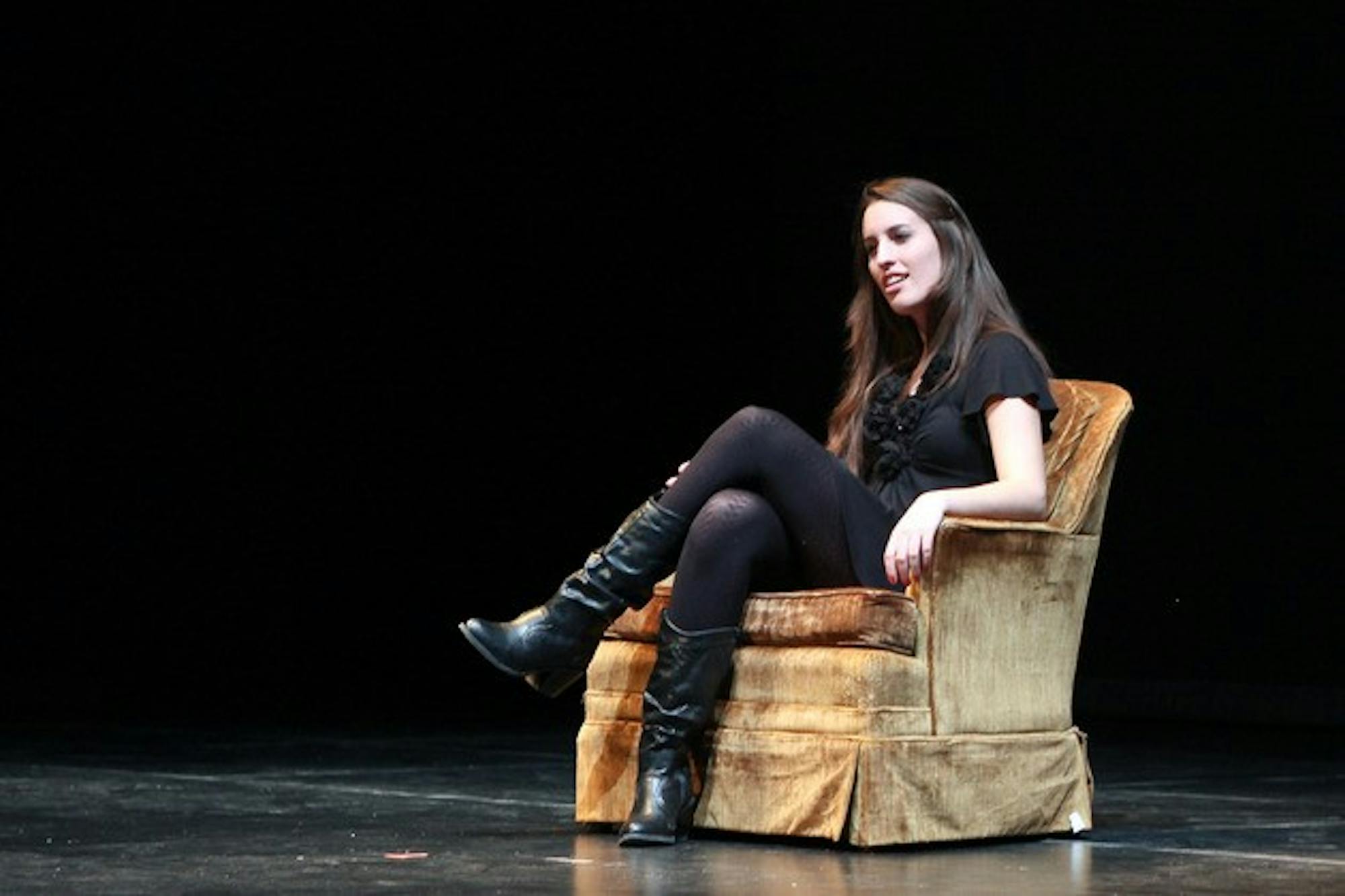Directors Maia Matsushita '13, Anna Fagin '13 and Gillian O'Connell '15 said they sought to put on a production that was not only relevant to women's issues at Dartmouth but inclusive of performers and their viewpoints.
"There are so many ways you can fail at Dartmouth," Fagin said. "I don't think you should be able to fail at Monologues.'"
No cuts were made to the production's cast, which comprised of 70 members. Among the performances of monologues from the original play, written by activist Eve Ensler, three pieces written by Dartmouth students were included in the performance.
Ensler's work, written in 1996, was based on interviews with hundreds of women of diverse ages, races and socioeconomic backgrounds about their experiences with sexuality.
The live performance part of the Dartmouth show was complemented with a video segment including over 30 male and female students who expressed their support for the V-week campaign.
"We wanted to show that the support extended outside this production of the Monologues,'" Matsushita said.
The idea to include a video component was conceived by O'Connell to underscore the community's commitment to issues of women's welfare and connect to the movement One Billion Rising, a global campaign that promotes gender equality. The inclusion of male voices in the video segment highlights that while "The Vagina Monologues" is often viewed as a female-exclusive event, there is ample space for males to be involved, O'Connell said. Although men are included in the video segment, there were no male performers on stage. Matsushita said that while male performers may have added different perspectives to the show, the casts have traditionally included women speaking about womanhood.
The show's directors emphasized that the monologues are not designed to alienate men or offend them.
"You don't have to be angry to be a feminist," Fagin said.
While noting that the tone of many monologues is harsh, Fagin said the show hopes to increase awareness of the struggles women face, not just in the form of oppression by males, but also their body image. Several sketches dealt more with women's personal lack of knowledge of their own vaginas, while many others took aim at homophobia, misogyny, sexual violence and transidentity.
Because each "Monologues" performance incorporates new pieces, the yearly production is constantly evolving and relevant to the College, said Jessica Jennrich, director of the Center for Gender and Student Engagement. The center funds V-week activities including "The Vagina Monologues."
Jennrich said she credits the breadth of viewpoints on femininity captured, which range from explorations of sex, language used to describe women and traumatic experiences, to the show's long-running success at the College.
Proceeds from the event will go to the domestic violence shelter WISE, located in Lebanon.




